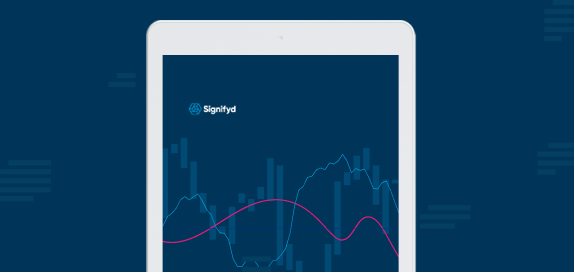Did you ever wonder why online retailers would rely on a very brick-and-mortar approach to offering customers point-of-sale financing to help them buy the products they want to purchase?
Daniel Simon and Josh Abramowitz, who co-founded consumer finance firm Bread, certainly wondered. The branded credit cards that ecommerce sites offered in much the same way an associate at Old Navy, Gap or Pottery Barn would, just didn’t seem right to the pair who met at Yale Law School.
After all, wasn’t the internet supposed to free us from things like standing at a checkout counter filling out forms to open an account and acquire a store-branded credit card? So why was securing the same credit privileges even worse online? Navigate away from the retailer’s site, fill out a maddening web form — all of which was even more fun on a smartphone.
“As an industry, it’s just stuck in the 1970s,” Simon says of the online, on-the-spot credit business. “There really has been no innovation in a long, long time. It’s really a disaster online. It really doesn’t speak the interactive language of the web and ecommerce. It’s high friction, high abandonment.”

Bread Co-Founder Daniel Simon
Enter Bread, the New York-based tech company that provides virtually instant credit with a quick web form on the retailer’s site and a click of a mouse. Bread, one of Signifyd’s strategic partners, is among a growing breed of tech companies that is disrupting and reimagining retail in an era of increasing competition and stress for many retailers.
Consumers are more likely to buy with easy financing
By providing finance options directly on retailers’ sites, including on category and product pages, Simon says consumers are more likely to buy and that they are more likely to buy more when they do buy. We live in an era of empowered consumers — consumers who want choices about how they pay and when they pay.
“If that customer had to pay upfront or put it on the (credit) card that they use for other stuff,” Simon says, “that customer might have walked out the door, so to speak.”
He says Bread typically provides a sales lift of 5 to 15 percent by making installment purchases possible for customers who can’t or would rather not pay the full price up front. He says individual retailers have seen dramatic increases in financed purchases after deploying Bread.
Gaming-computer seller Digital Storm, for instance, saw a more than doubling in loan volume year-over-year and a 1.5-times increase in average order value on financed purchases after switching from a competitor to Bread.
The numbers make a strong case for Simon’s argument that retailers need to consider how they offer financing as a part of their comprehensive ecommerce strategy.
“That’s got to be part of an overall marketing strategy,” he says. “Just as a merchant would want to think about their acquisition channels, their outbound marketing efforts, their sort of merchandising, their checkout experience, financing is one essential tool in that marketing tool kit.”
Simon says Bread’s current customers are primarily mid-market merchants who generate roughly $10 million to $100 million in annual online sales. The company makes real-time decisions on financing with the help of a few pieces of personal information provided by a buyer.
Bread’s technology determines the amount of risk a buyer represents and therefore the interest rate they will pay on the loan. It also tracks Bread’s portfolio of borrowers, making sure to keep a balance in its risk pool.
Rather than attempting to build its own direct-to-consumer brand, Bread provides retailers with a white label product. Bread’s brand typically doesn’t appear on its customers’ sites, which allows the retailer to keep control of the customer experience and encourages the customer to associate the entire shopping, financing and buying experience with the retailer’s brand.
“The retailer has invested a lot in brand equity and making the customer feel comfortable with their financial experience,” Simon says. “Because of that, our entire philosophy is to make the product as customizable as possible.”
Bread’s white-label approach increases conversions
Retailers who have moved from having Bread’s financing branded on their sites to a white label approach, in which financing is integrated without branding, have seen a 20 percent increase in conversions, he says.
Eliminating Bread’s branding also helps retailers build customer loyalty, Simon says. A customer is likely to return to a retailer’s site that he or she associates with being able to easily finance his or her purchase.
As for Bread’s partnership with Signifyd, Simon says the two companies together “essentially is a full package.” Bread brings to a merchant’s site customers who without financing wouldn’t have the purchasing power to convert.
Signifyd, with its guaranteed fraud protection, shields a merchant from fraudulent orders while allowing it to ship more orders without the fear of fraud.
“The synergy is there, across the two solutions,” Simon says. “Both Signifyd and Bread are doing complex work to look at merchants’ transactions in real time to try to create an experience for consumers.”
Contact Mike Cassidy at [email protected]; follow him on Twitter at @mikecassidy.










